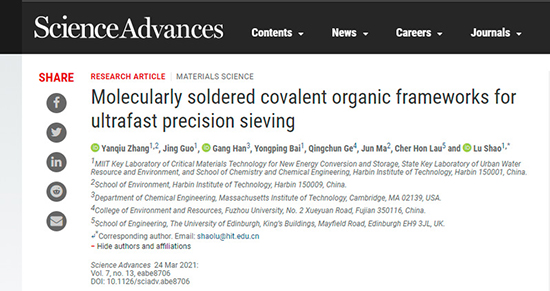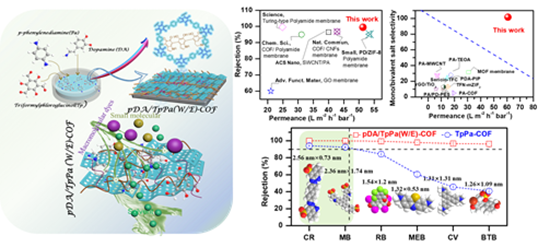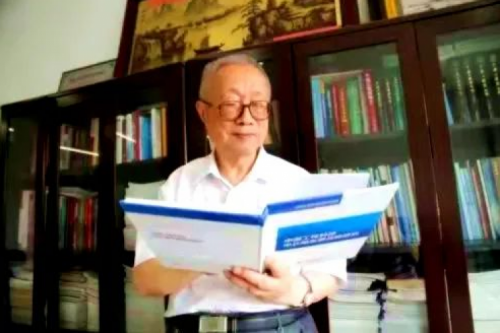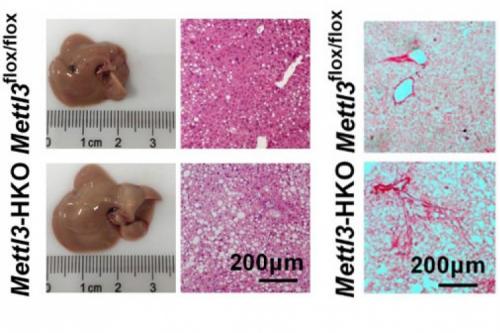Harbin Institute of Technology News: News – Professor Shao Lu, faculty member of the School of Chemical Engineering and Chemistry as well as a key member of the State Key Laboratory of Urban Water Resources and Water Environment, developed a new strategy for the synthesis of efficient nanofiltration membranes by interfacial "molecular welding". And the paper, Molecularly Soldered Covalent Organic Frameworks for Ultrafast Precision Sieving, has been published in Science Advances, an online-only open access journal from AAAS, the publisher of Science. The first author is Zhang Yanqiu, a young faculty member in the School of Chemical Engineering and Chemistry and a fellow in Civil Engineering. The sole correspondence address of the paper is HIT, and Prof. Shao is the sole corresponding author.

Two-dimensional (2D) covalent organic frameworks are a class of crystalline porous materials connected by covalent bonds, with well appreciated for their excellent properties such as completely organic metal-free skeletons, low mass density, good topology and structural diversity thus making them high-quality separation membrane materials. However, the current synthesis and preparation of defect-free 2D covalent organic framework membranes with sub-nanometer pore size and precision sieving capability remains a tricky challenge because of the rigid membrane formation conditions.

Figure: The process of synthesizing covalent organic skeleton nanofiltration membrane by interfacial "molecular welding" and the separation effect
Prof. Shao and his team have developed a new strategy for the synthesis of covalent organic bone nanofiltration membranes through a one-step interfacial molecular welding approach.They have adeptly used the coupled chemical environment of condensation polymerization of two-dimensional covalent organic framework materials and self-polymerization of dopamine to synthesize defect-free ultrathin 2-D covalent organic framework nanofiltration membranes with precise sieving ability through interfacial reactions. In addition, their experimental data and density functional theory simulations have demonstrated that the new nanofiltration membranes have excellent separation effects in organic solvent system separation applications and desalination applications.
This work was supported by the National Natural Science Foundation of China (21878062), the Heilongjiang Distinguished Young Scientists Fund (JQ2020B001) and the Independent Project of State Key Laboratory of Water Resources (2020DX02).
Original linkof the paper:https://advances.sciencemag.org/content/7/13/eabe8706




